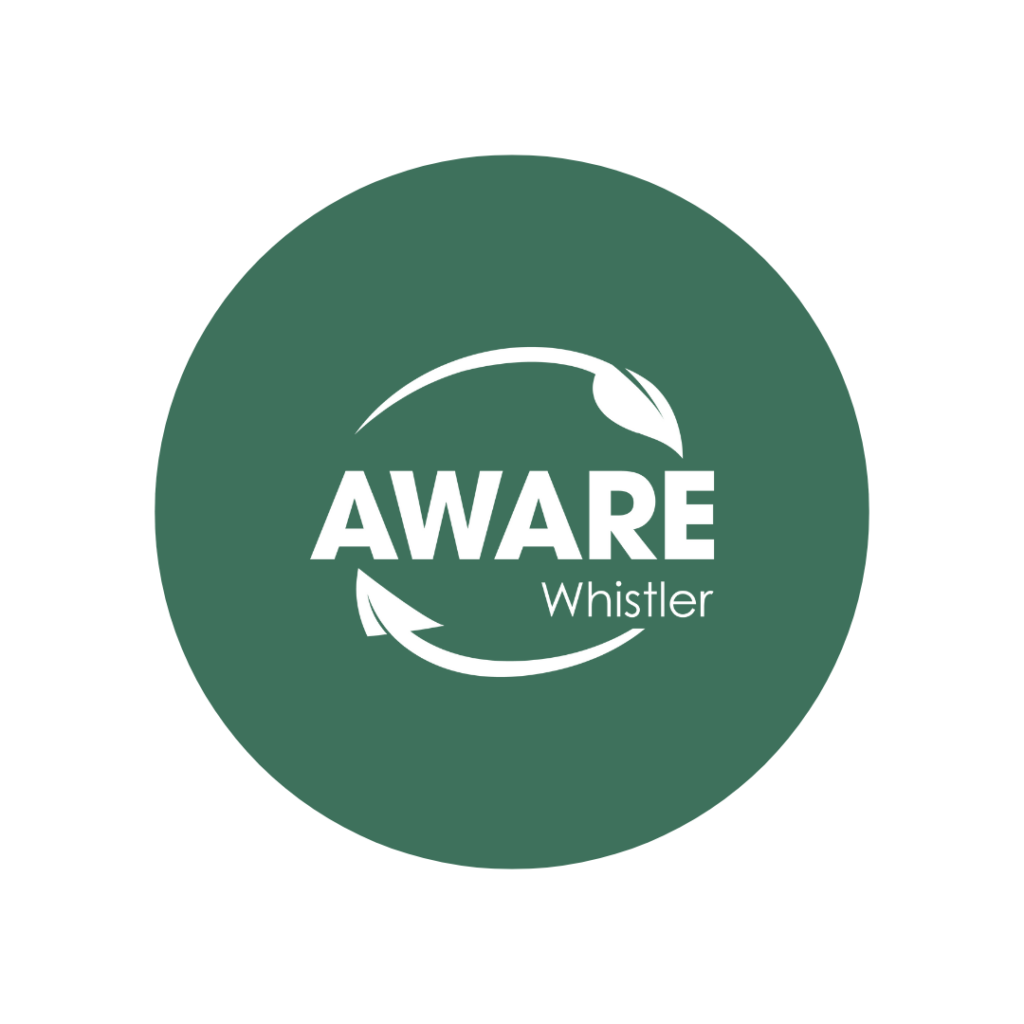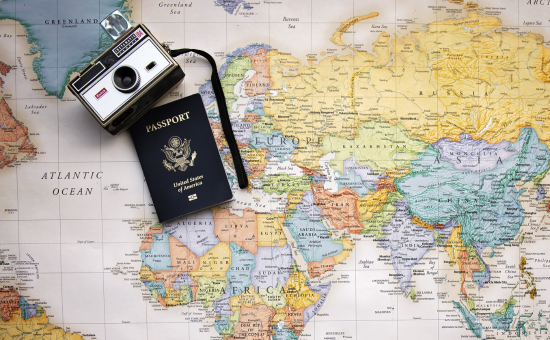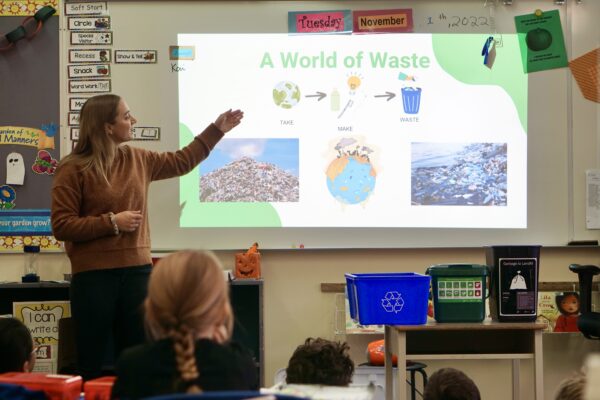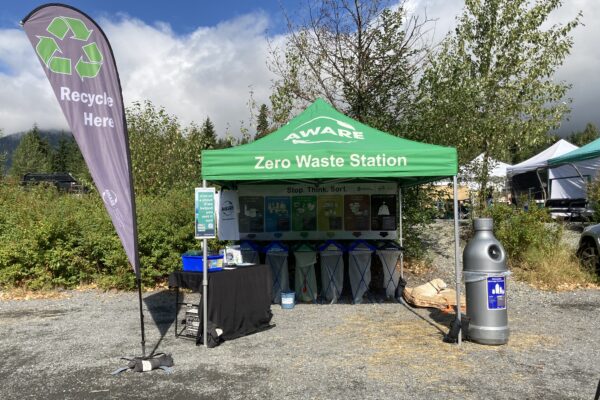Was one of your New Year’s resolutions to do some more reading? You want to start reducing your carbon footprint and learn more about the current environmental state of the world. Or maybe you want to help find solutions and help your eco-anxiety?
We’ve put together an extensive list of books on climate change that will tick all of those boxes. Head on in to Armchair Books to own a copy for yourself. Or get to Whistler Library and use your library card to loan any books, audio books and e-books on file.
Books on Climate Change:
- The End of Nature, Bill McKibben. McKibben wrote this book in 1989 when global warming was still referred to as “the greenhouse effect.” It was an abstract worry even for environmentalists, who were still reeling from the fight to save the ozone layer. For McKibben the crises were connected and spoke to a bigger problem. There was a disregard for nature and how humans were capable of harming it.
- The Sixth Extinction, Elizabeth Kolbert. Reporting from the Andes, the Amazon rainforest, the Great Barrier Reef and her own backyard, Kolbert registers the impact of climate change on the life of our planet. What emerges is a picture of the sixth mass extinction, which threatens to eliminate 20-50% of all species on Earth this century.
- This Changes Everything, Naomi Klein – Forget everything you think you know about global warming. It’s not about carbon – it’s about capitalism. The good news is that we can seize this crisis to transform our failed economic system and build something better. It’s about changing the world, before the world changes so drastically that no one is safe. Either we leap – or we sink. This Changes Everything is a book that will redefine our era.
- Merchants of Doubt, Naomi Oreskes and Erik Conway. The story of how a loose-knit group of high-level scientists and scientific advisers, with deep connections in politics and industry, ran effective campaigns to mislead the public and deny well-established scientific knowledge over four decades. Remarkably, some of the same figures who have claimed that the science of global warming is “not settled” denied the truth of studies linking smoking to lung cancer, coal smoke to acid rain, and CFCs to the ozone hole.
- Windfall, McKenzie Funk. A fascinating investigation into how people around the globe are cashing in on a warming world. Funk has spent the last six years reporting around the world on how we are preparing for a warmer planet. Funk shows us that the best way to understand the catastrophe of global warming is to see it through the eyes of those who see it most clearly – as a market opportunity.
- On Fire, Naomi Klein. An expansive, far-ranging exploration that sees the battle for a greener world as indistinguishable from the fight for our lives. With reports spanning from the ghostly Great Barrier Reef, to the annual smoke-choked skies of the Pacific Northwest, to post-hurricane Puerto Rico, to a Vatican attempting an unprecedented “ecological conversion,” Klein makes the case that we will rise to the existential challenge of climate change. But only if we are willing to transform the systems that produced this crisis.
- Field Notes from a Catastrophe, Elizabeth Kolbert. In what began as a groundbreaking three-part series in the New Yorker in 2006, Kolbert cuts through the competing rhetoric and political agendas to elucidate for Americans what is really going on with the global environment and asks what, if anything, can be done to save our planet. Written in 2006, this book is still relevant to our discussions of climate change today.
- The Water Will Come, Jeff Goodell. This is the definitive account of the coming water, why and how this will happen, and what it will mean. As he travels across twelve countries and reports from the front lines, acclaimed journalist Jeff Goodell employs fact, science, and first-person, on-the-ground journalism to show vivid scenes from what already is becoming a water world.
- The Death and Life of the Great Lakes, Dan Egan. Egan delivers an eye-opening portrait of our nation’s greatest natural resource as it faces ecological calamity. He tells the story of the decimation of native species and he examines new risks, such as unsafe drinking water, the threat of water diversions, and “dead zones” that cover hundreds of square miles of water. While showing how the Great Lakes can be restored and preserved for generations to come.
- Losing Earth, Nathaniel Rich. By 1979, we knew nearly everything we understand today about climate change–including how to stop it. Over the next decade, a handful of scientists, politicians, and strategists risked their careers in a desperate, escalating campaign to convince the world to act before it was too late. Losing Earth reveals the birth of climate denialism and the genesis of the fossil fuel industry’s coordinated effort to thwart climate policy through misinformation propaganda and political influence.
- The Story of More, Hope Jahren. At once an explainer on the mechanisms of warming and a capsule history of human development, The Story of More illuminates the link between our consumption habits and our endangered earth, showing us how we can use less and share more. It is the essential pocket primer on climate change that will leave an indelible impact on everyone who reads it.
- The Uninhabitable Earth, David Wallace-Wells. In his travelogue of our near future, David Wallace-Wells brings into stark relief the climate troubles that await. From food shortages, refugee emergencies, and other crises that will reshape the globe. But the world will be remade by warming in more profound ways as well. Thus transforming our politics, our culture, our relationship to technology, and our sense of history.
- What we Know About Climate Change, Kerry Emanuel. Intended as the book that can be used by those “who are disputing this problem with their own parents or an uncle or something”. Kerry Emanuel, an MIT climatologist gives the facts in a measured, clear way to educate even the least-informed on climate change and what is happening around us.

Since 1989, AWARE has been on the ground working to protect the Whistler environment, including from the harsh realities of climate change. Recently, we have seen record highs of forest fires, floods, droughts and heat domes, alongside less snowfall in the valley, hotter and drier summers and glacier loss. All of these cause havoc to the natural ecosystems and native species that make up Whistler’s environment.
Nature, the very foundation of the Whistler experience, is under threat, but AWARE is here to help. From public education of waste management through school workshops and events and parks presence, to a community garden and greenhouse program to help turn food waste into new food for our community, we do it all.



